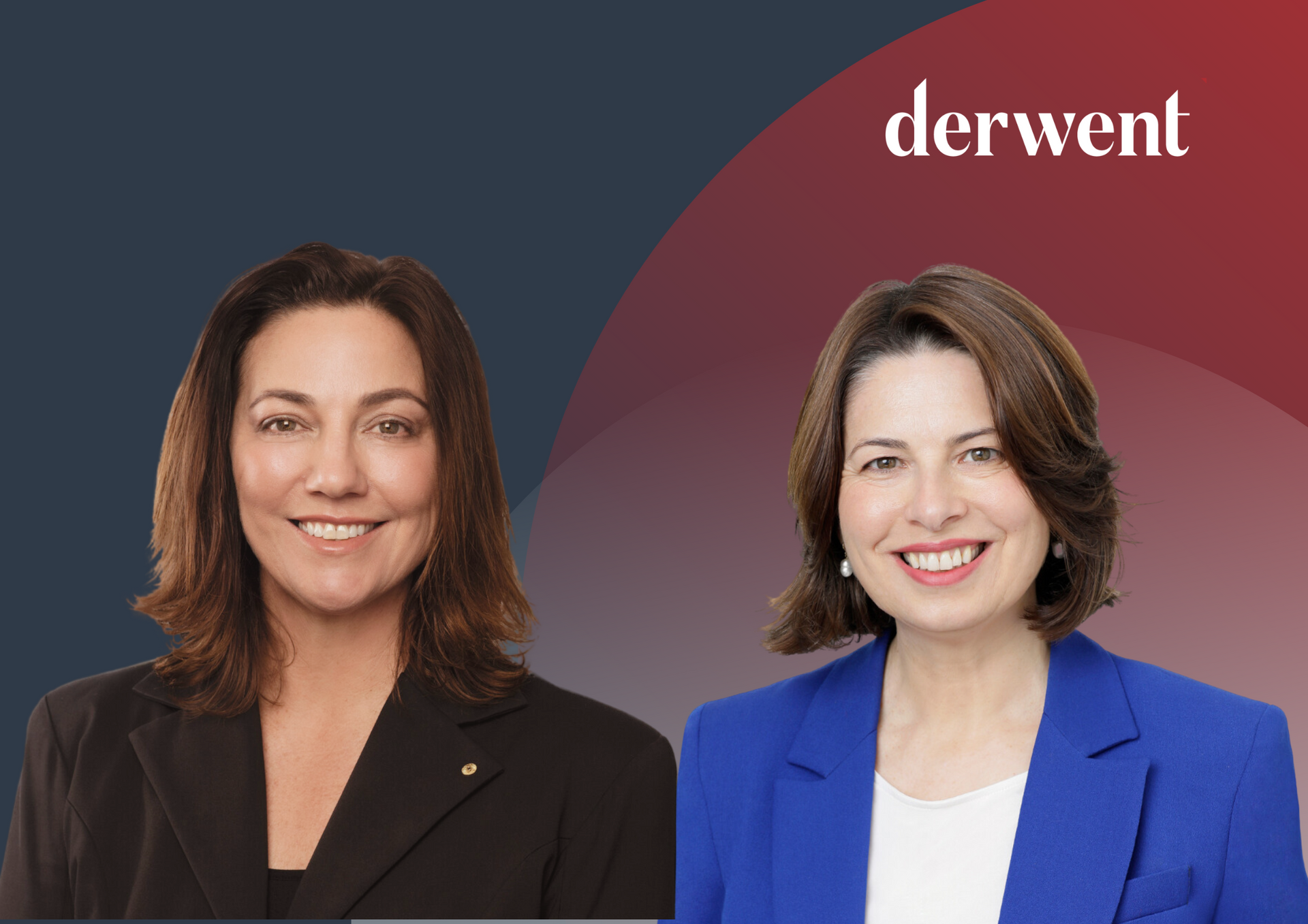News
Derwent welcomes advisory board members Megan McCracken and Jenn Morris

Derwent is pleased to announce the addition of Megan McCracken and Jenn Morris OAM to its advisory board.
Derwent’s advisory board combines diverse experience, expertise and networks to support strategy development and commercial leadership.
Megan and Jenn join existing advisory board members David Jones AM and Peter Tonagh in delivering ongoing strategic advice and impact.
Megan McCracken
Megan spent over thirty years’ in the mining, automotive, energy, and rail industries in WA, Victoria, and NSW. Across her extensive executive experience with Rio Tinto, Dalkia, and Arc Infrastructure, Megan led teams across people and culture, operational safety, and corporate affairs teams.
She is an advisor and qualified leadership coach, supporting executives and businesses through significant organisational change, to transform individuals, cultures and workplaces to thrive today, and into the future.
In addition to coaching, consulting, and mentoring, Megan is a non-executive director of Pacific Energy, Chair of the Freight and Logistics Council of WA, and formerly Chair of the National Association of Women in Operations.
Megan holds a Bachelor of Arts, a Master of Industrial Relations, and further postgraduate qualifications in Business and Applied Linguistics. She is a credentialled coach with the International Coaching Federation and a Graduate of the Australian Institute of Company Directors.
Jenn Morris OAM
Jenn brings more than twenty years’ experience in executive and non-executive roles, advising government entities and corporations on strategy development, governance controls, business transformation, ESG, leadership development, and high-performance environments.
She is a former Partner at Deloitte, working for over ten years across the mining, government and transport sectors. Following her time in consulting, Jenn joined Walk Free as CEO, leading the Minderoo Foundation’s global initiative against slavery.
Her current Non-Executive Director portfolio includes Sandfire Resources, Argonaut, Liontown Resources, and several private company boards. She is previously a Non-Executive Director of Fortescue Metals Group and the Fremantle Dockers and has sat on the boards of the Western Australian Institute of Sport and the Australian Sports Commission as a Commissioner.
Jenn is an Olympian, winning gold medals as part of the Australian women’s hockey teams at the 1996 Atlanta and 2000 Sydney Olympics. In 1997, she was awarded a Medal of the Order of Australia (OAM).
She holds a Bachelor of Arts (Psychology and Journalism) from Curtin University, and has completed Finance for Executives at INSEAD. Jenn is also a Member of the Australian Institute of Company Directors.
Share this Article
Recent Articles






